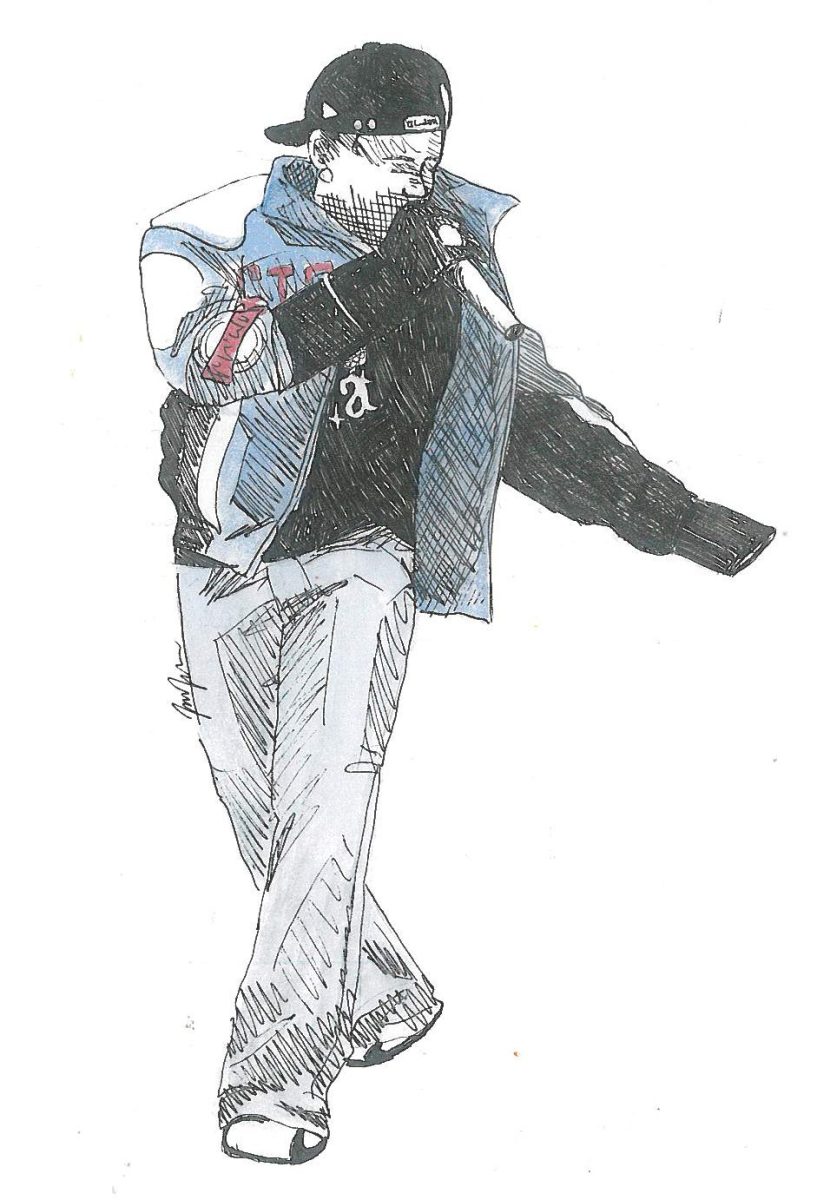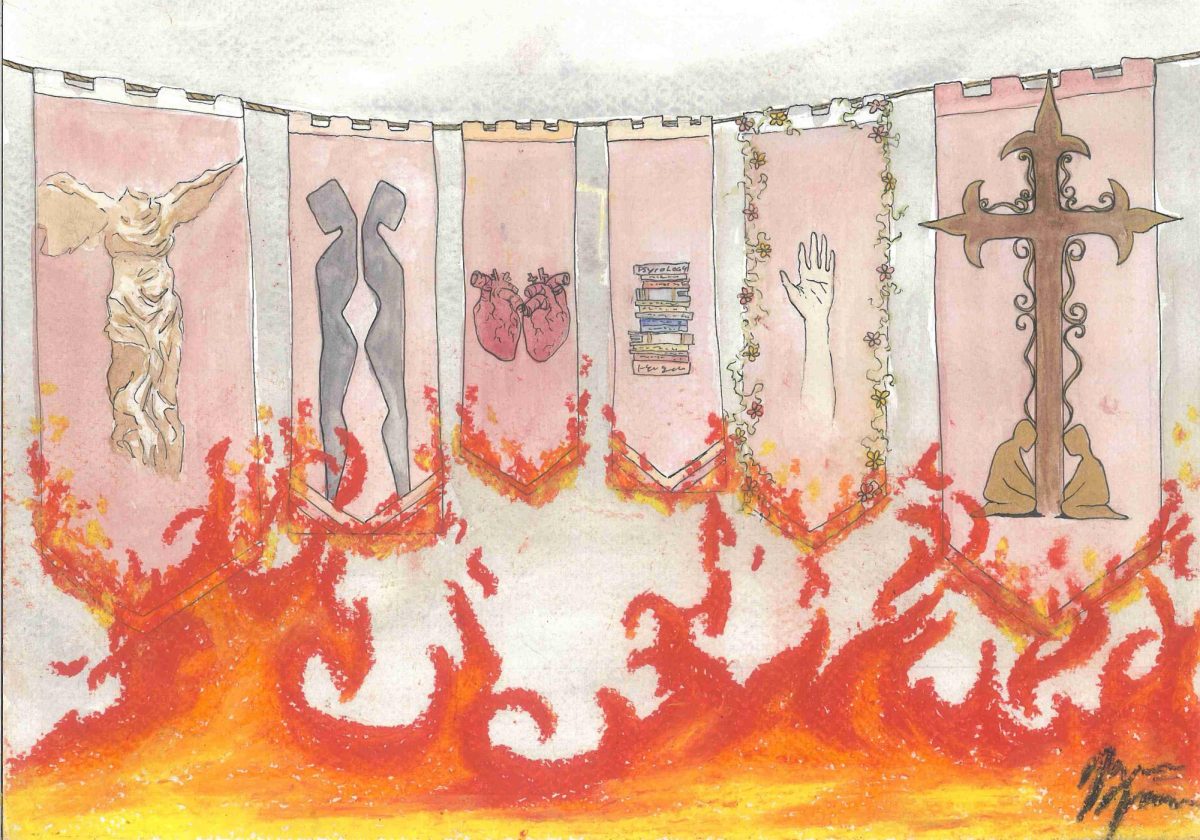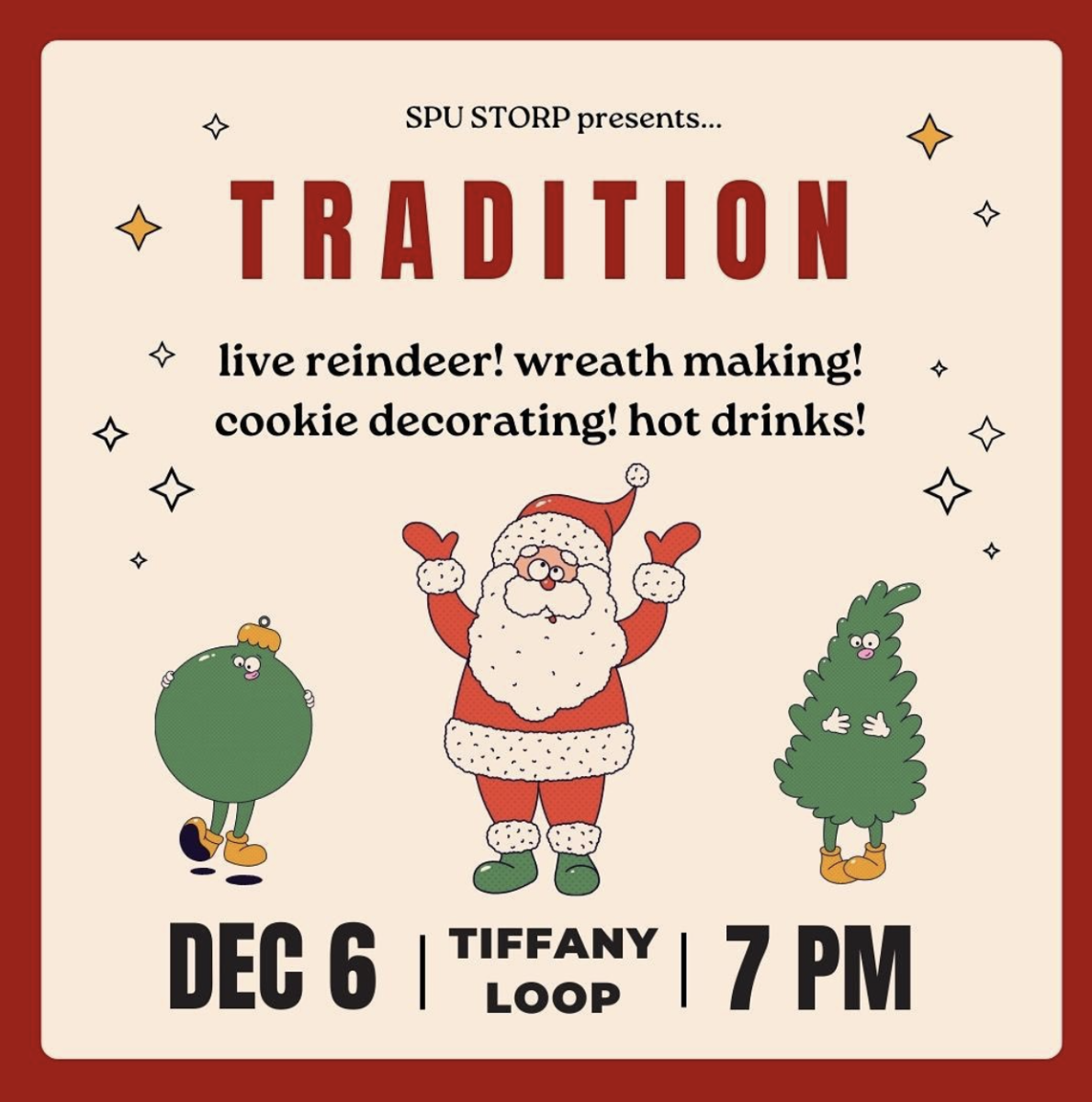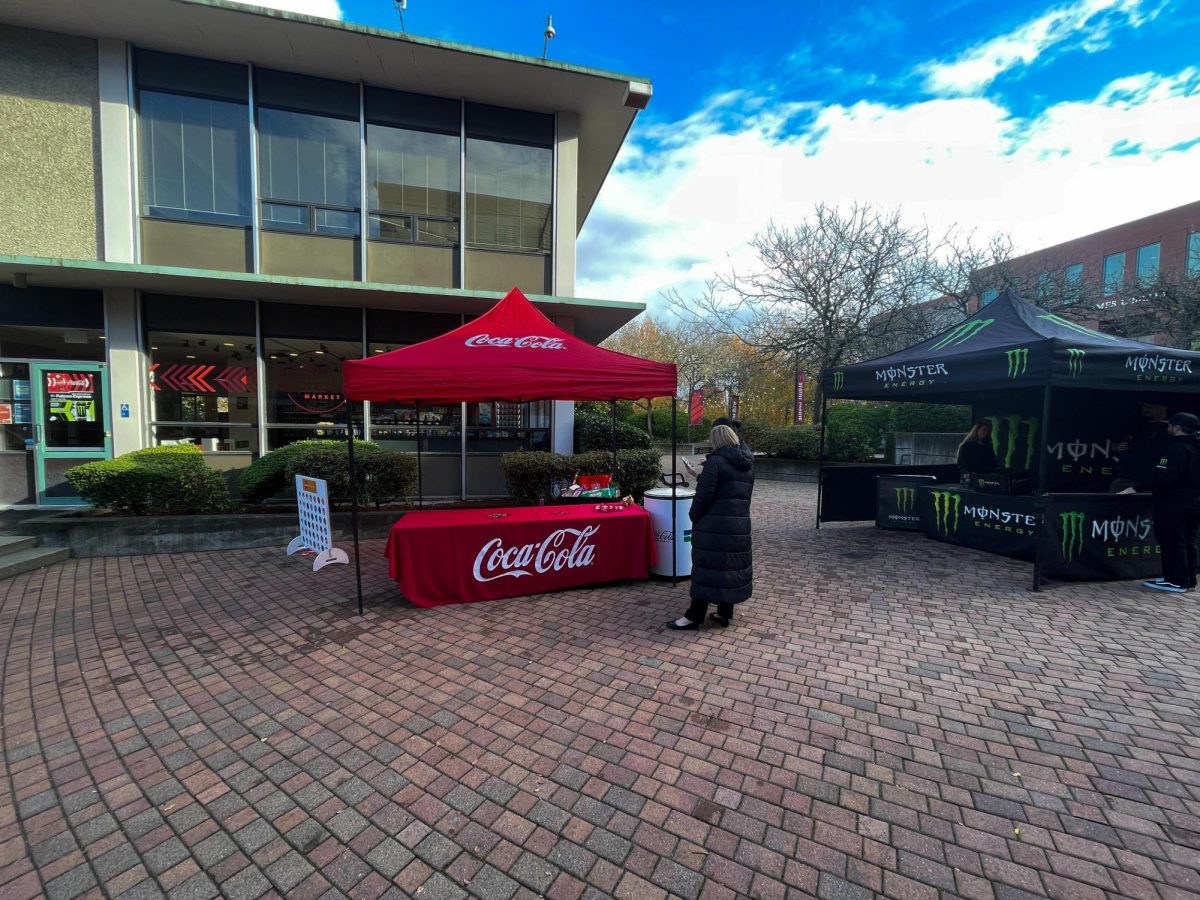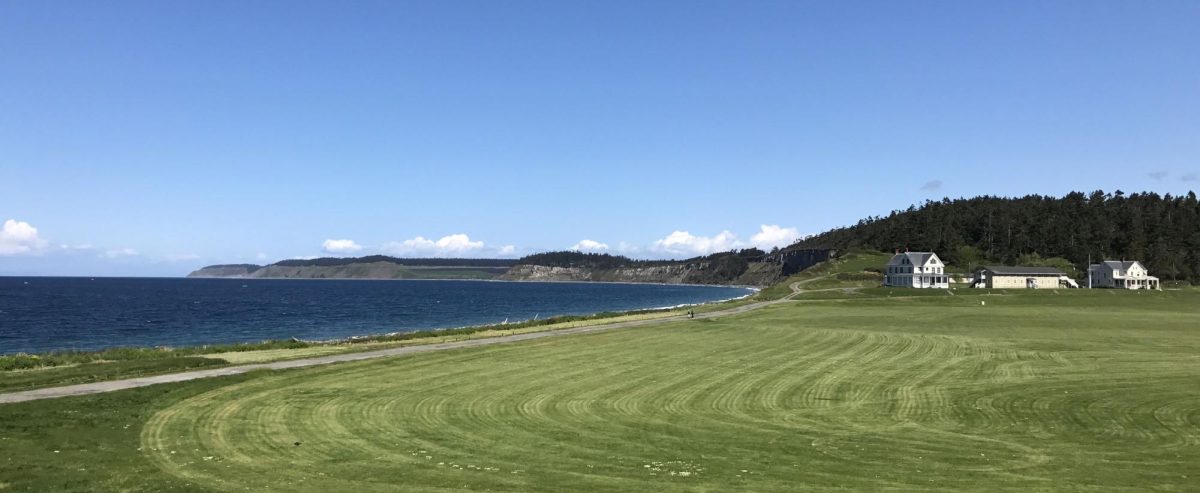What the subjects we discuss teach us about the ones we don’t
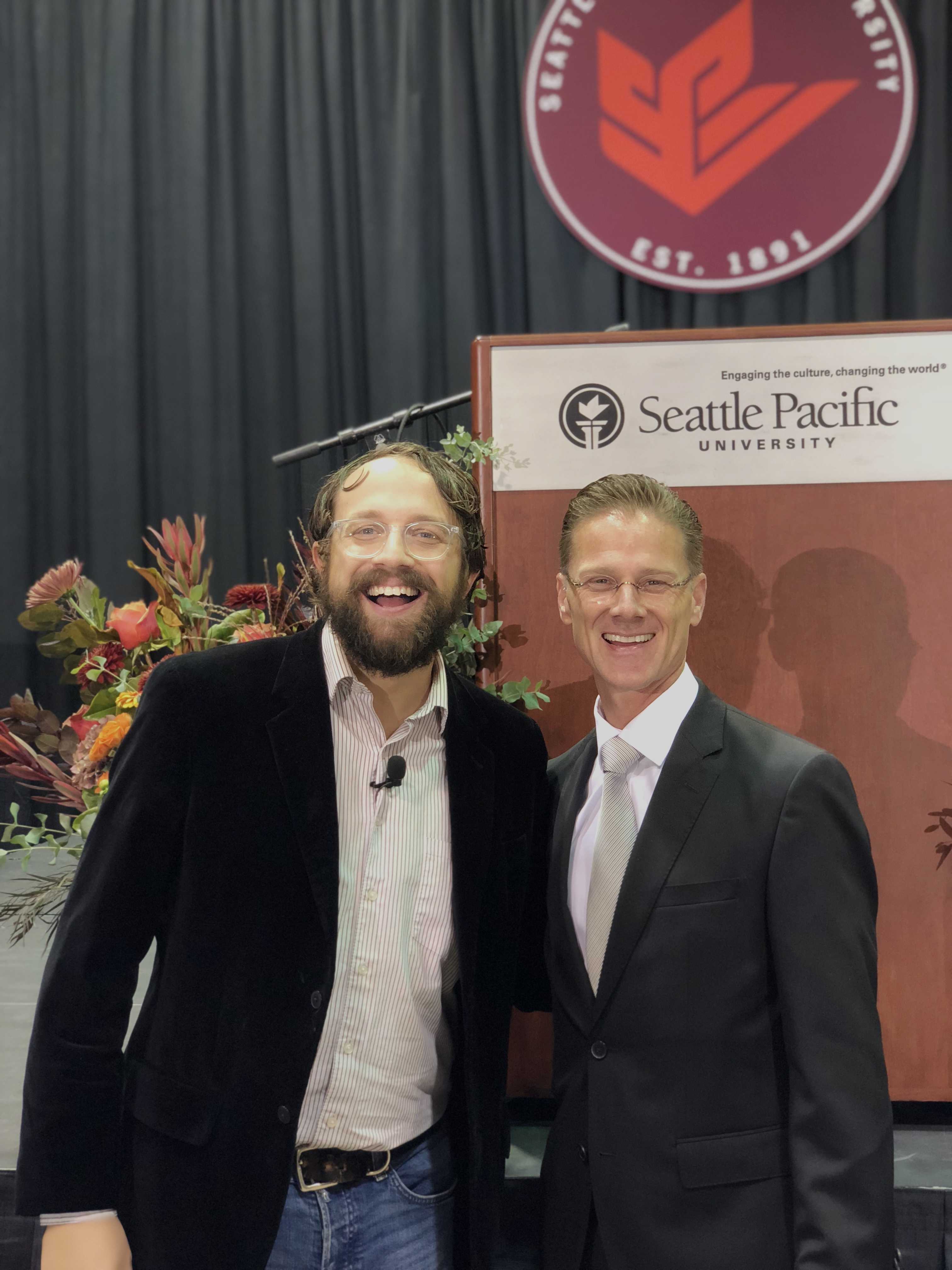
The theme of Dr. A.J. Swoboda’s keynote speech, which took place on Oct. 17 on the Day of Common Learning, was merging the of Christian philosophy with environmentalism.
Growing up in a “progressive, quazi-spiritual home” and then transitioning into a conservative church, Swoboda battled to make his two passions meet.
Swoboda, who teaches at Fuller Seminary, spent most of his life in trying to understand the relationship between care for the planet and Christianity.
Supposedly he has figured it out. Now, he is attempting to pass it on to Seattle Pacific University.
This is not the first time the university has looked outside of the school for answers to similar questions.
Last winter quarter, an artist by the name of Cam Anderson came to the school to do a lecture on the “venn diagram” of Christianity and art. His claim was that there is overlap between the two as long as one area does not ignore or try to impersonate the other.
Even the university’s rebranding could point to tension between Christianity and pop-culture.
The new logo, the new mission statement, the new priorities of the school, they all say something about what is going on.
How, if possible, can Christian philosophy and secular culture merge to make a stronger faith on our campus?
I am not attempting to answer this question, mostly because I do not speak for the entire school.
However, I do think the choice the university made to bring in Swoboda to answer this question says something about the university as a whole.
My theory: the university is confused.
The school is constantly being pulled in a variety of different directions, politically. Some say the school is too conservative. Some say the school is too liberal. Some say that there is nothing wrong and the school is fine.
In choosing Swoboda, the university was hoping to placate the left-leaning part of the student body and faculty by addressing environmentalism, while satisfying the conservative donors and right-leaning part of the student body and faculty through its faith component.
The fact that environmentalism was addressed instead of issues like sex or gender orientation only serves to prove my point more.
Most people want to save the planet.
It is not a hard thing to say that nature is wonderful and worth keeping around, particularly when it is being called “creation.” Environmentalism does not rock the boat like a sex or gender themed talk would.
It would seem like the university is avoiding those kinds of topics at all costs.
I think Swoboda’s talk is an appropriate simile for the position taken by SPU.
Firstly, there is it’s unwillingness to commit to a political side.
Swoboda never made his political leanings clear, which could be intentional. It mirrors the lack of commitment the university is willing to make as well. The argument that schools should not officially pick sides has validity.
However, even if “we’re liberal” is not clearly stated in the brochure, the school’s inclusion policies will be clear enough to let their stance speak for itself.
Secondly, the liberalism is shallow.
Though Swoboda did his best to articulate his appreciation for Martin Luther King Jr. and for women, in many ways he glanced right over it. In the same way, often it feels like the university is just trying to check off the boxes of preventing racism and sexism, but not genuinely interested in stopping it.
There is, however, one area where I think the simile of Swoboda’s speech for the position of the school ends. Swoboda has found a solution that bridges the issues of environmentalism and Christianity whereas the school has not found a bridge between secular culture and Christianity.
This deficiency can be seen in the unchanged statement of human sexuality while resident halls discontinued the language of brother and sister floors and swapped it in for sibling floors, the irony being that the floors are still labeled as men’s and women’s.
Examples like this perfectly illustrates my point.
At the moment, the university is in limbo. I think it will stay that way until the university plucks up the courage to commit to something, whether that means embracing the question of sex and gender orientation or deciding if they will cling to traditional ideologies of Christianity or not.
Whichever they choose, I think most people are in agreement in one area. Something needs to change.

















































































